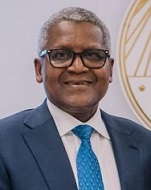Opinion:
BY TUNDE AKkINLADE
I have taken time to examine the approaches adopted by both PENGASSAN and NUPENG in their standoff with the Dangote Refinery. My conclusion is that both unions risk becoming toothless bulldogs sooner than they expect, as their members are likely to shift loyalty to their employer.
In the long run, the national interest will outweigh any errors the refinery may have committed against its workers. The unions ought to have put their internal structures in order before embarking on such a confrontational path.
Trade unions generally collect check-off dues deducted from members’ salaries, either monthly or at the point of payment. They are also permitted to impose levies payable only by their members, usually from salaries, arrears, or allowances. This is the standard arrangement in both private and public organized sectors.
On the other hand, unorganized unions such as the NURTW, the Nigerian Union of Tailors, and the RTEAN (the latter being an employers’ union) operate differently since their members are not on formal payrolls. The NURTW, for instance, depends on daily ticketing – often enforced through crude methods. RTEAN also relies on touts and intermediaries to collect levies from its members.
But no union is permitted to impose levies on third parties or non-members, except through voluntary donations. Where, then, did PENGASSAN derive the authority to collect a ₦50,000 levy on each fuel tanker loaded from the refinery? If such a practice exists, it is arbitrary, unconstitutional, and completely unacceptable.
More importantly, there is no known dispute between PENGASSAN and its employers that justifies shutting down their service lines. Such an act amounts to economic sabotage – a serious offence that attracts severe penalties under Nigerian law. Beyond that, the union has no authority to interfere in the relationship between its members’ employers and their customers, especially where it is not a party to the contract.
History offers warnings. At the University of Ilorin years ago, ASUU lecturers forced students out of examination halls during a protest. The matter went to court, and many lecturers were dismissed, with only a handful later reinstated. Again, during the protracted ASUU strike of 2020, the Federal Government, through the Minister of Labour and Productivity, dealt a heavy blow to the union – an impact from which ASUU is still struggling to recover.
Building on that precedent, the Tinubu administration has since introduced reforms in universities that make strike actions less attractive. PENGASSAN and NUPENG now risk forcing the government to adopt similar tough measures if they refuse to pursue their grievances against the Dangote Refinery through lawful and constructive channels.
The Federal Government has made it clear that it will not allow any obstacle to disrupt the free flow of petroleum products.
*Tunde Akinlade writes from Ogbomoso, Oyo State.
 Startrend International Magazine For Your Latest News And Entertainment Gists
Startrend International Magazine For Your Latest News And Entertainment Gists





